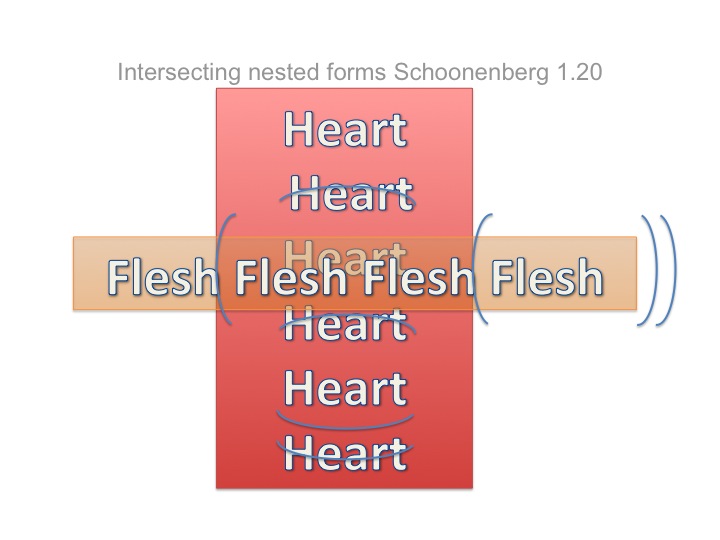Summary of text [comment] page 13.
Paul sees “sin” [sin(consciencelacking)] as preceding transgression [sin]. Every “sin” is opposed to the Holy Spirit [thinkdivine]. “Sin” hardens the “heart” [think3(2(conscience1))]. See Eph 4:3; Rom 8:14 and Gal 5:19-21.
He who lives in “sin” is “carnal” and “of the flesh” [denying lawessential3(appeasing2(dispositions1))].
The concept of “flesh” is the summary of “what man is under sin”.
[As indicated with the brackets interspersing the summary of the text, elements of the intersecting nested forms parallel Paul’s comments.
Two words have powerful associations:
“heart” : think3(_2(conscience1))
The “heart” is purely theoretical in this association. That is, think3(_2(conscience1) is a purely theoretical concept. It cannot become actual unless specified.
“Heart” is concrete only when specified in a super-ego or tautological fashion.
A “hardened heart” is thinkgroup3(_2( consciencelacking1).
An “open heart” is thinkdivine3(_2(consciencefree1).
“flesh” : a denial of lawessential3(_2(disposition1))
The “flesh” has multiple associations. “Flesh” presumes a thinkgroup and consciencelacking that facilitates sins that emerge from one’s dispositions. “Flesh” denies the consequences (lawessential) of those sinful acts as well as appeases the dispositions. “The denial of lawessential3” puts the transgression into context.
Of course, lawessential remains “what it is” as the consequences or contextualization of the transgressions. It cannot be articulated in the symbolic order of the thinkgroup.]

